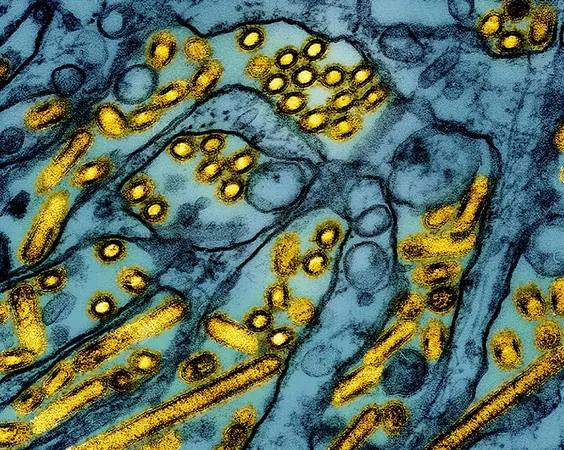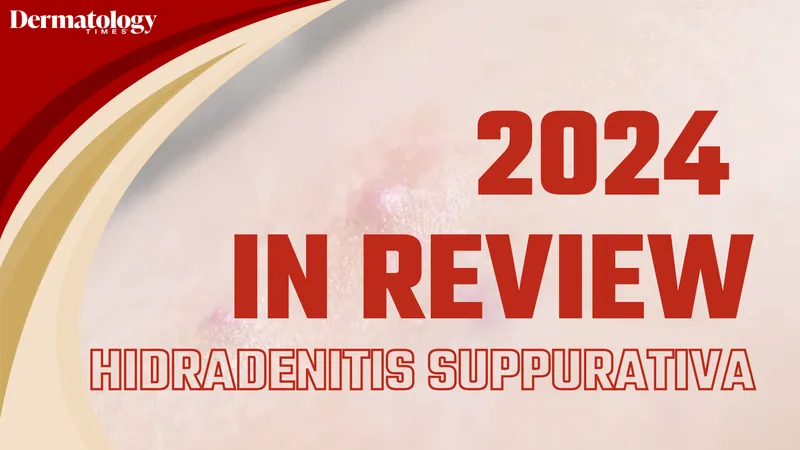
Alarming Bird Flu Outbreak: How to Shield Your Beloved Cat!
2024-12-27
Author: Jia
Introduction
The recent demise of an Oregon house cat, linked to bird flu, has sparked urgent discussions on how to protect our feline friends from this virus. As public health officials and veterinarians weigh in, the danger has never seemed more real.
The bird flu, officially known as H5N1, has long been a menace to wild birds, chickens, and turkeys, but its mutation has made it a risk to other species, including domestic cats. The outbreak, which began making headlines in March, has already claimed numerous lives among various animals and is raising concerns among pet owners nationwide.
Health officials discovered the cat's illness was traced to frozen cat food containing raw turkey, matching strains found in the deceased pet. This revelation serves as a stark reminder that raw meat can harbor dangerous viruses, including bird flu. Dr. Michael Q. Bailey, president-elect of the American Veterinary Medical Association, warns against the risks of feeding pets raw meat or unpasteurized dairy products, suggesting that the cooking or pasteurizing processes are vital to eliminate harmful pathogens.
The Vulnerable Feline: Are Our Cats at Risk?
Though infections among cats are still uncommon, evidence shows they are particularly susceptible to H5N1. Recent cases have included barn cats, feral felines, and even big cats in zoos. Disturbingly, the Los Angeles County Department of Public Health is currently investigating four additional cat fatalities linked to recalled raw dairy products.
Dogs appear to be less at risk, but they too should only consume thoroughly cooked food. Dr. Bailey emphasizes the importance of keeping pets safe from potential exposure by supervising their outdoor activities. Cats, being natural hunters, are drawn to birds, making them susceptible to the virus if left to roam freely.
Precautionary Measures to Protect Your Cat
To safeguard your furry companion, here are essential tips: 1. **Avoid Raw Foods**: Do not feed your cats unpasteurized dairy products or raw meat. 2. **Limit Outdoor Access**: Keep indoor cats away from wild birds, poultry, and livestock to minimize risks. 3. **Hygiene Matters**: If handling sick or deceased birds, prioritize thorough handwashing.
Vigilance is key in recognizing symptoms. If your cat experiences lethargy, loss of appetite, or displays unusual behavior (like hiding), it could signify sickness. Other alarming signs include red or inflamed eyes, discharge from the nose, breathing difficulties, and even tremors. If you notice such symptoms, contact your veterinarian promptly while keeping your cat away from people with weakened immune systems.
The Recall That Has Pet Owners on High Alert
In a concerning development, Portland's Northwest Naturals has announced a voluntary recall of its Feline Turkey Recipe raw frozen pet food after positive tests for H5N1. This product was distributed across multiple states, including Arizona, Florida, and Pennsylvania. The affected batches are marked with "best if used by" dates of May 21, 2026, and June 23, 2026. If you have this product, you are urged to dispose of it and seek a refund from the outlet of purchase.
As this health crisis evolves, keeping informed and taking proactive measures are vital in protecting our pets. Stay tuned for more updates on this developing story and ensure your cats are safe from the lurking threat of bird flu!



 Brasil (PT)
Brasil (PT)
 Canada (EN)
Canada (EN)
 Chile (ES)
Chile (ES)
 España (ES)
España (ES)
 France (FR)
France (FR)
 Hong Kong (EN)
Hong Kong (EN)
 Italia (IT)
Italia (IT)
 日本 (JA)
日本 (JA)
 Magyarország (HU)
Magyarország (HU)
 Norge (NO)
Norge (NO)
 Polska (PL)
Polska (PL)
 Schweiz (DE)
Schweiz (DE)
 Singapore (EN)
Singapore (EN)
 Sverige (SV)
Sverige (SV)
 Suomi (FI)
Suomi (FI)
 Türkiye (TR)
Türkiye (TR)